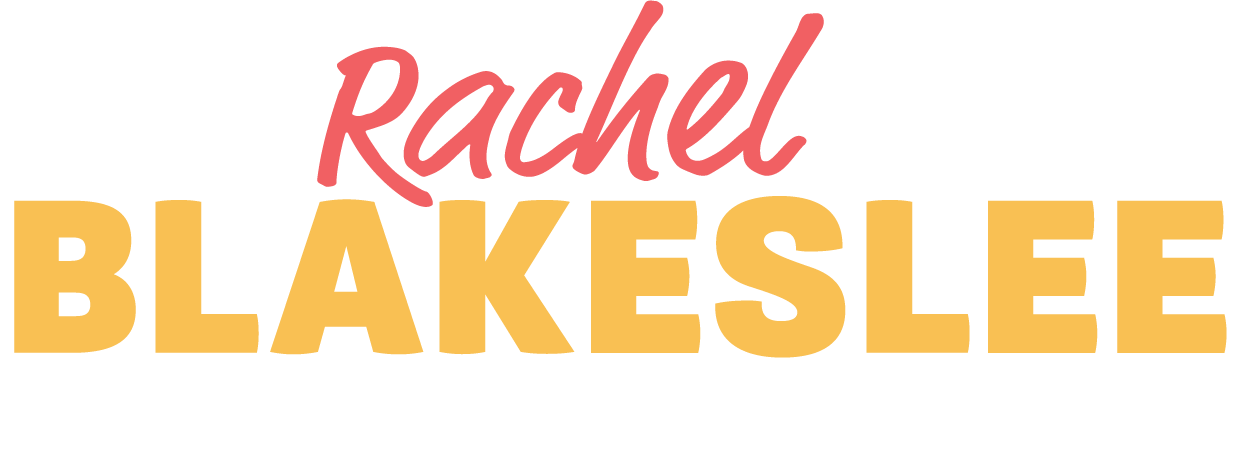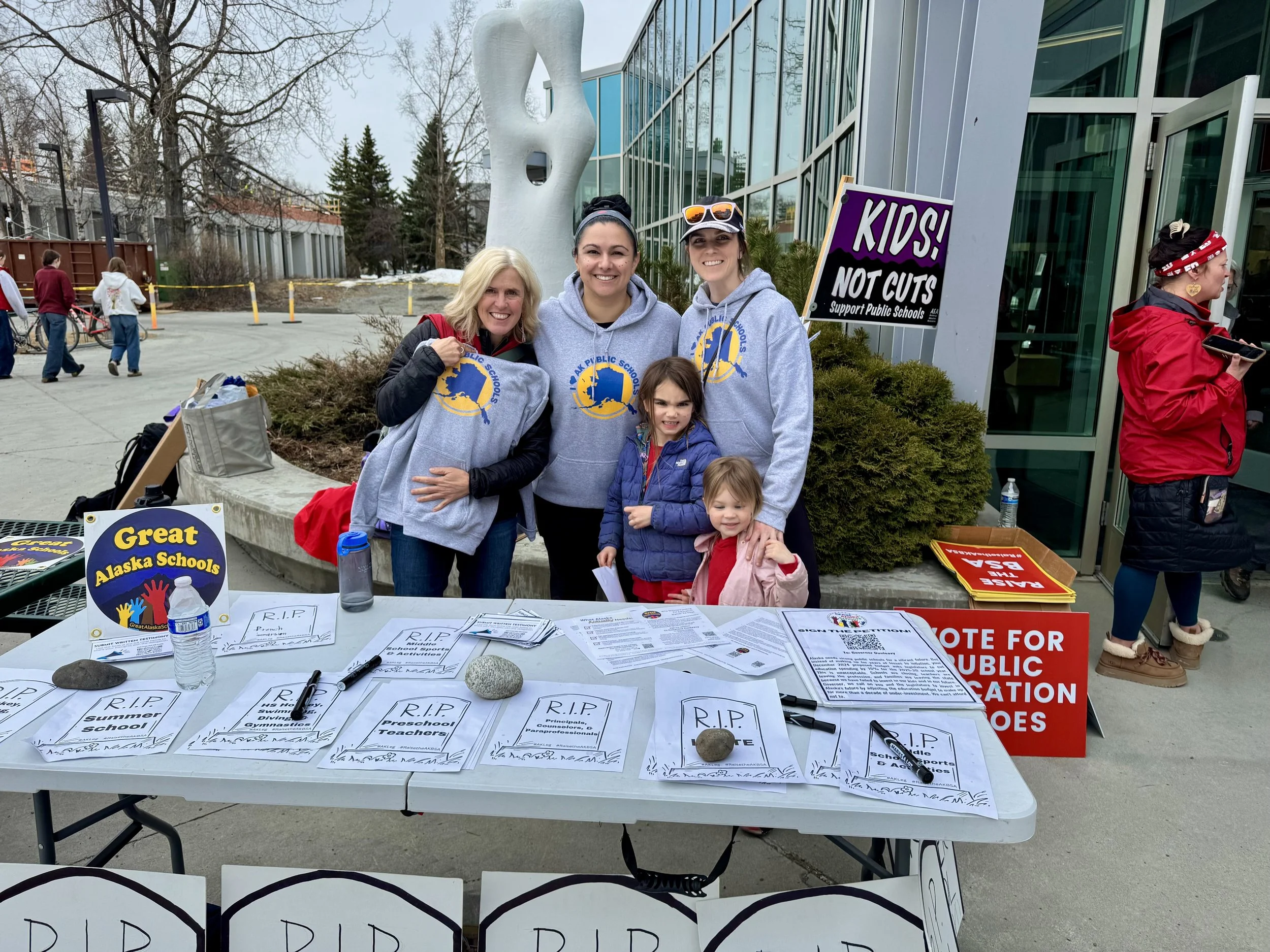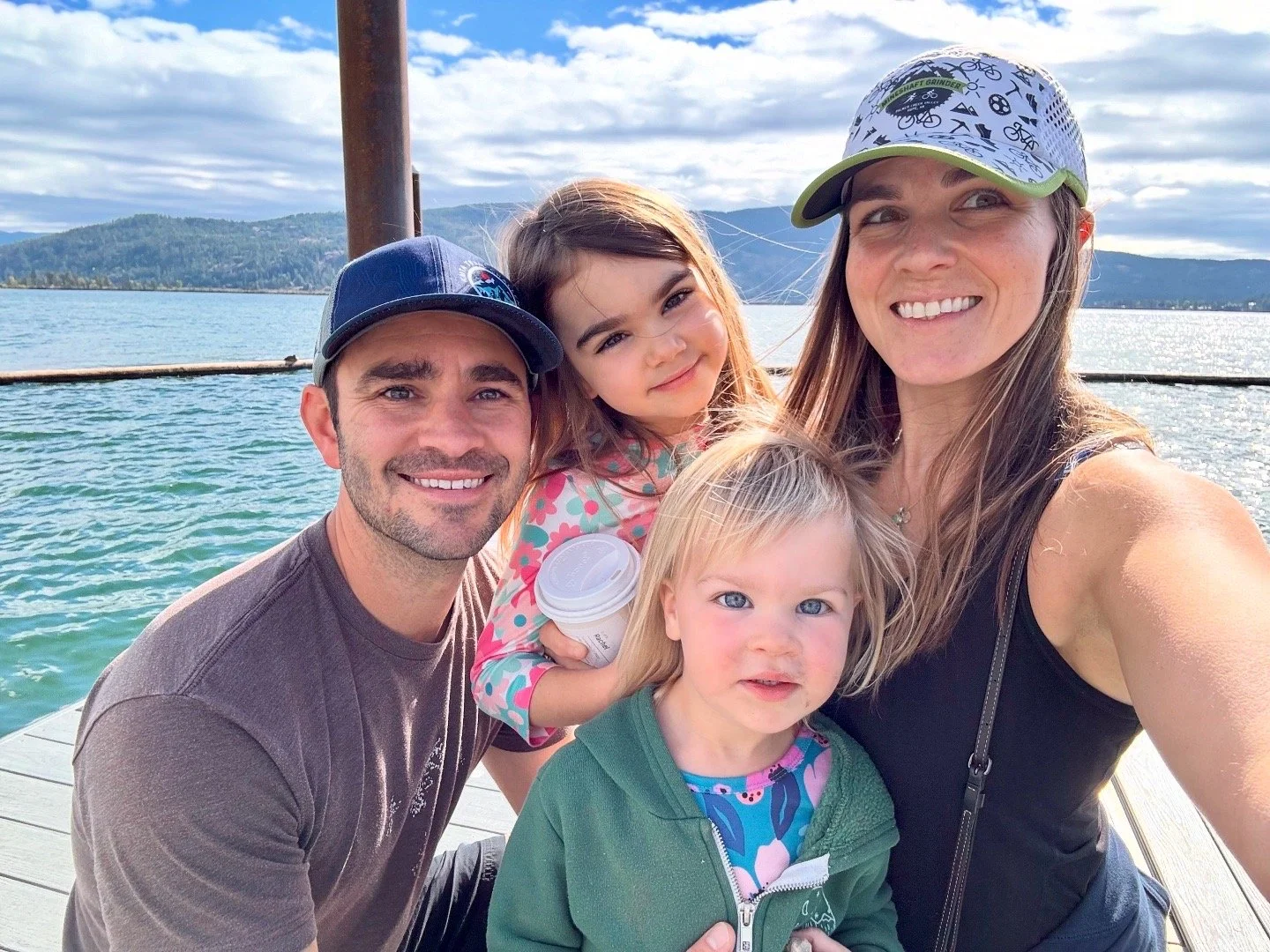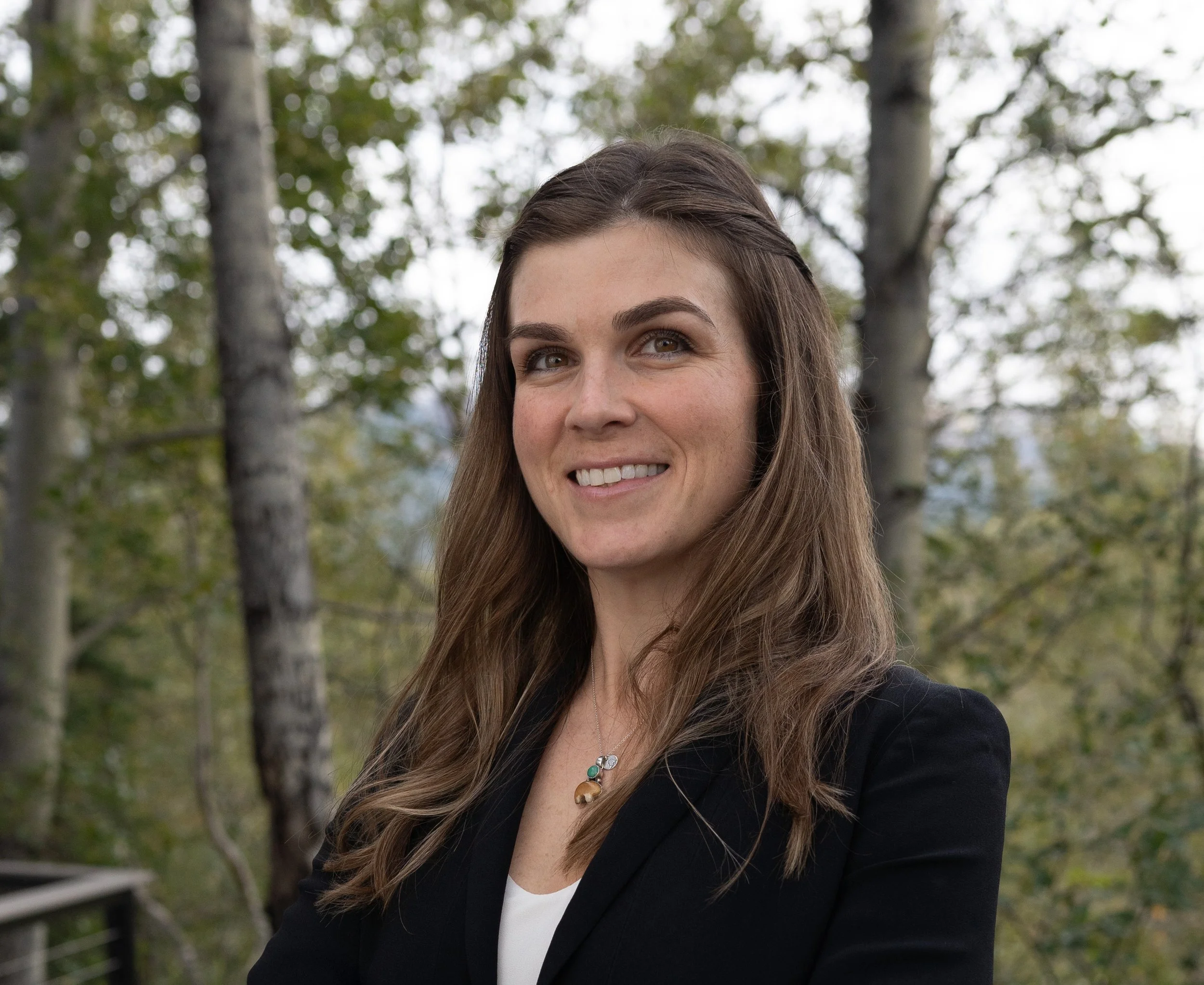
Running for the strong, stable schools our kids deserve.
Rachel Blakeslee is running for Seat C on the Anchorage School Board because, like so many families and educators, she’s exhausted by the constant churn of crises in our school system.
We Can Do Better
There are serious challenges — like flat state funding — that the Anchorage School District can’t fully control. But there’s a lot it can do better. It can improve transparency. It can communicate with more clarity and empathy. And it can make thoughtful decisions that aren’t rushed and that reflect the lived realities and real needs of students, families, and educators.
If the district does a better job with what it can control, it can help unify our communities and relieve some of the relentless stress families feel year after year. In a time of deep funding uncertainty, families shouldn’t feel like they’re often fighting against both the district and the state. I know that feeling all too well. The fight should always be together for the strong, stable, joyful public education our kids deserve.
I’d like to see ASD slow down its pace of sweeping changes and take time to evaluate what’s really working, and what’s not. I want to see a shift toward thoughtful, data-informed decision-making that supports— not further strains — our school communities. And I want parents and teachers to feel informed, not overwhelmed and forced to become expert researchers just to make sense of what’s happening in their schools.
Above all, I want to help rebuild trust through honest, two-way communication that brings those most affected into the conversation from the start.
Learn More about Rachel’s Priorities:
-
In recent years, the Anchorage School District has undertaken a series of major changes: new school start times, shifting sixth grade into middle school, launching high school career academies and the ongoing rightsizing effort to name a few. While many of these initiatives have been rooted in efforts to improve outcomes for students, the pace and scale of change have left families, educators and school staff without time to adapt or recover.
I recognize and respect that many within the district are working hard under difficult circumstances and with limited resources. But the implementation of these changes hasn’t always accounted for the day-to-day realities our families face and the real needs of our kids, from childcare to transportation logistics to the balance of work and school schedules to fully thought-out prioritization of initiatives that will truly boost learning opportunities.
I believe our district needs to slow down the pace of change — not to stall progress, but to reflect on what’s working, where more support is needed and how we can roll out future changes that are needed in a way that feels manageable and responsive.
-
Families and educators want to be part of shaping the future of our schools—but too often, they’re left out of the process. The rightsizing initiative is a powerful example: schools were selected for potential closure based on a rubric that, while data-informed in theory, included flawed assumptions about community realities and startlingly large gaps in critical information. Parents, educators and school communities were then forced to fill in those gaps with little notice—conducting their own research, correcting missing or inaccurate information and scrambling to advocate for their schools on a very short timeline to meet an accelerated district-imposed deadline.
Some district leaders acknowledged after the fact that they hadn’t fully understood key details about certain schools. But the burden of identifying those gaps shouldn't fall so heavily on families. It was especially burdensome on those with fewer resources at their disposal to make a case for themselves. The district’s intent to welcome feedback was real, but the process didn’t reflect a true partnership with families and school communities, ultimately further eroding public trust.
As a board member, I’d advocate for more inclusive, transparent decision-making processes, where communication is early, honest and two-way. I’d push for clearer data, more accessible and engaging public forums and enough lead time for real dialogue. It’s essential that our families and educators feel respected and heard, and I don’t feel we’ve hit the mark on that yet.
-
We are in the midst of a public-school funding crisis — not just in Anchorage, but across Alaska. The state’s flat funding has forced local districts into impossible choices: cutting programs, increasing class sizes, continuing to fail in teacher compensation, closing schools and making heartbreaking trade-offs just to get by. I’ve stood shoulder to shoulder with parents, educators and students testifying for fair funding for far too long, and I’ve seen firsthand how hard our district leaders are working to stretch limited resources beyond logic. I also know that even the best budget decisions are difficult to understand from the outside.
Unfortunately, misinformation breeds when there are gaps in understanding. I’ve heard claims that the district has more money secretly stashed somewhere, or that administrative mismanagement, not underfunding, is what’s really to blame. It’s more important than ever that the school board helps the public make sense of the district’s finances so they can make informed decisions about what they advocate for.
As a school board member, I’d work to bring greater clarity to how our district’s finances function: where money comes from, where it goes, what financial constraints the district is under and how funding shortfalls impact our students.
-
Our schools are hurting. Teachers are burning out, support staff are stretched thin and students are feeling the effects. If we want strong academic outcomes, and thriving school communities, we have to invest in and listen to the people who make learning possible every day.
That means better pay and benefits for our teachers and providing the resources educators need to meet students where they are. It means rethinking how we support classroom management, individualized instruction and student behavior, so that teachers don’t feel like they’re doing it all alone.
It also means respecting educators as professionals. That includes listening to their expertise about what’s working and what isn’t when it comes to curriculum, assessments and district initiatives. Teachers need to be part of the decision-making process of the policies that are impacting them, not just expected to implement plans handed down from above.
Elect Rachel Blakeslee for Anchorage School Board
In the race for Seat C, every dollar matters. Whether you can give $5, $50 or $500 dollars, your support helps reach voters across Anchorage. Thank you!




